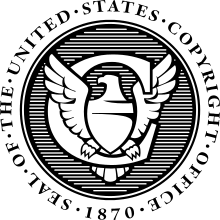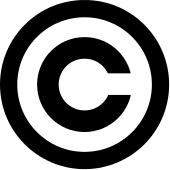Music Modernization Act
.svg.png) | |
| Full title | To modernize copyright law, and for other purposes. |
|---|---|
| Colloquial name(s) | Music Modernization Act |
| Introduced in | 115th United States Congress |
| Introduced on | April 10, 2018 |
| Sponsored by | Bob Goodlatte |
| Number of co-sponsors | 49 |
| Legislative history | |
| |
The Orrin G. Hatch–Bob Goodlatte Music Modernization Act, or Music Modernization Act or MMA is United States legislation signed into law on October 11, 2018 aimed to modernize copyright-related issues for music and audio recordings due to new forms of technology like digital streaming. It is a consolidation of three separate bills introduced during the 115th United States Congress.
Enjoined bills
The MMA is a combination of three bills previously introduced in Congress.[1]
Title I: Music Modernization Act
The singular Act was first introduced into the House by Rep. Bob Goodlatte on December 17, 2017 (H.R. 4706), and later to the Senate by Sen. Orrin Hatch on January 24, 2018. Both versions of the bill looked to improve how music licensing and royalties would be paid in consideration of streaming media services. The bill established three major provisions:[2]
- It would set up a non-profit governing agency that would create a database related to the owners of the mechanical license of sound recordings - the copyright that covers the composition and lyrics of a song; the actual performance and recording of the song is typically held under a different license. The database would be completed with help of the major music publishers. The new agency would establish blanket royalty rates that would be used to pay the composers and songwriters when used by streaming services using this database, eliminating the difficulty previously faced by streaming services to properly identify the mechanical license holder. These royalties would be paid to the non-profit agency as a compulsory license, not requiring the mechanical license holder's permission; the agency would then be responsible for distributing the royalties. Streaming services would still be able to negotiate other royalty rates directly with the mechanical license owner if they so chose.
- It assures that songwriters are paid a portion of mechanical license royalties for either physical or digital reproduction of a song with their lyrics, at a rate set by contract.
- It revamps the rate court process when disagreements over royalty rates arise. Prior, a single judge in the United States District Court for the Southern District of New York was assigned to handle all cases; the bill would assign a random judge in this Court to oversee these cases.
In addition, elements of the "Fair Play Fair Pay Act", H.R. 1836, introduced on March 30, 2017 by Rep. Jerrold Nadler were added to this Title. The Fair Play Fair Pay Act had been designed to harmonize how royalties were paid by terrestrial radio broadcasters and Internet streaming services. Under previous law, songwriters and composers would receive mechanical license royalties for radio play, but the performing artists would not be paid as the use of songs on the radio was considered "promotional". The Fair Play Fair Pay Act had included language that would allow recording artists to receive performance royalties. However, these parts of the Fair Play Fair Pay Act were not included in the combined Music Modernization Act.[3]
Title II: CLASSICS Act
The Compensating Legacy Artists for their Songs, Service, and Important Contributions to Society (CLASSICS) Act was originally introduced in the House as H.R. 3301 in July 2017. In US Copyright Law, sound recordings made prior to February 15, 1972 were not covered under federal copyright law, leaving them up to the individual states to pass laws for recording protection. This had created a complex series of laws that made it difficult for copyright enforcement and royalty payments. The CLASSICS Act established that sound recording before 1972 are covered by copyright until February 15, 2067, with additional language to grandfather in older songs into the public domain at an earlier time. Recordings prior to 1923 will enter the public domain three years from passage (January 1, 2022, as all U.S. copyright terms end on December 31), and with recordings between 1923 and 1956 being phased into the public domain over the next few decades.
Title III: Allocation for Music Producers Act
The Allocation for Music Producers (AMP) Act bill was introduced by Rep. Joseph Crowley on February 6, 2017 as H.R. 881. The bill designates that SoundExchange, the non-profit organization established by Congress to distribute royalties on sound recordings, to also distribute part of those royalties to "a producer, mixer, or sound engineer who was part of the creative process that created [the] sound recording".
.jpg)
Passage
The three bills were enjoined in the House by Goodlatte on April 10, 2018 as H.R. 5447 , which passed the bill on April 25, 2018. Hatch introduced the combined bill in the Senate as S. 2823 on May 10, 2018. During the Senate's review, the body voted to move the bill to an existing, unrelated bill, H.R. 1551, which the House agreed to. The Senate voted in favor of the bill on September 19, 2018, and was subsequently signed into law by President Donald Trump on October 11, 2018.[1] Among those in attendance at the signing were musicians Kid Rock, Mike Love, Sam Moore, John Rich, Craig Morgan and Jeff Baxter, and the rock group MercyMe. While Kanye West had been reported to be attended the signing, he was not present though had a luncheon with President Trump later that day.[4][5]
Reactions
The bills in both House and Senate had bipartisan support, as well as strong support from numerous music industry groups representing musicians, producers, and publishers, as well as from digital streaming media services and related industry groups.[6] Digital streaming platforms Apple and Spotify had both come under prior separate legal actions for unpaid royalties for streaming music in part due to a lack of a central database for which to track down songwriters and composers.[7][8]
A last-minute conflict in the Senate, brought up by SESAC and SiriusXM, relating to royalties for pre-1972 sound recordings, but a deal was made between SiriusXM, the National Music Publishers Association and the Recording Industry Association of America which allowed the bill to be passed by the Senate by a unanimous vote, allowing the bill to quickly pass through Congress via "hotlining" before the end of the session.[6]
References
- 1 2 Deahl, Dani (October 11, 2018). "The Music Modernization Act has been signed into law". The Verge. Retrieved October 11, 2018.
- ↑ Singleton, Micah (January 26, 2018). "Congress may actually fix music royalties". The Verge. Retrieved October 11, 2018.
- ↑ Parisi, Paula (April 9, 2018). "Music Modernization Act to Be Introduced Tuesday". Variety. Retrieved October 11, 2018.
- ↑ Wang, Amy (October 11, 2018). "Trump Signs Landmark Music Bill Into Law". Rolling Stone. Retrieved October 11, 2018.
- ↑ Johnson, Ted (October 11, 2018). "Trump Signs Sweeping New Music Licensing Legislation". Variety. Retrieved October 11, 2018.
- 1 2 "Senate Passes Music Modernization Act". Variety. September 18, 2018. Retrieved October 11, 2018.
- ↑ Kreps, Daniel (January 3, 2018). "Wixen's $1.6 Billion Spotify Lawsuit: What You Need to Know". Rolling Stone. Retrieved October 11, 2018.
- ↑ Jeong, Sarah (March 14, 2018). "A $1.6 BILLION SPOTIFY LAWSUIT IS BASED ON A LAW MADE FOR PLAYER PIANOS". The Verge. Retrieved October 11, 2018.

